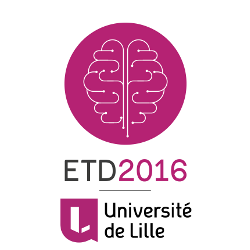A doctoral thesis contains by definition ground-breaking new scientific work that expands the current knowledge of a research field. While the importance of guarding and sharing this knowledge is usually well recognized, there are challenges when it comes to finding and accessing research data resulting from dissertations.
This poster presentation will focus on the problem of the (often) missing link between a PhD thesis and related data sets. Taking the Netherlands as a use case, we will illustrate the current situation and demonstrate possible ways in which this issue can be overcome.
Most Dutch universities require their PhD candidates to submit their dissertations to a digital repository where they are stored safely for the long term and made accessible to others. Regulations for sustainable storage of the PhD data are, however, much less strict. Research data collected during a PhD project is stored in a multitude of different ways and usually, the data is archived separately from the dissertation. In most cases, no direct link to an associated dataset is provided in the dissertation, which makes it hard or impossible for the reader to check claims in the thesis or to reuse a potentially useful dataset.
DANS (Data Archiving and Networked Services) is an institute of the Royal Netherlands Academy of Arts and Sciences (KNAW) and the Netherlands Organization for Scientific Research (NWO) promoting sustained access and reuse of digital research data, including data from dissertations. DANS aims to inform PhD candidates, universities and other stakeholders about ways in which consistent linkage of data and dissertations can be realized to preserve the data for the long term and to make it better findable, accessible and reusable.
A couple of steps need to be taken to solve the currently missing links between data and dissertations: on the one hand, consistently linking the two types of digital objects requires agreement on and adaptations of the relevant metadata standards describing the objects. These adaptations then need to be implemented in the research information and repository systems used by the universities. On the other hand, awareness about the importance of proper data storage and reference has to be raised with young scientists. University policy makers could set clearer requirements and should promote facilities and training to support this.
In this poster presentation, we would like to sketch the current situation in the Netherlands and propose a set of action steps that will to bring us closer to consistent linking of data and dissertations, thereby unlocking the “hidden treasures” of Dutch PhD theses. Of course, a similar approach can be followed elsewhere.
On the author:
Ricarda Braukmann works at Data Archiving and Networked Services (DANS) in The Hague (NL). She is involved in a project led by Ingrid Dillo and Peter Doorn, assessing how Dutch data and dissertations can be connected in a more sustainable way. DANS is an institute of the Royal Netherlands Academy of Arts and Sciences (KNAW) and the Netherlands Organization for Scientific Research (NWO) promoting sustained access and reuse of digital research data, including data from dissertations.
Next to her work at DANS, Ricarda is currently finishing her PhD in cognitive neuroscience at the Radboud UMC in Nijmegen (NL). Her PhD project is part of a large European collaboration through which Ricarda has gained interest and experience in research data management.
- Picture
- Poster

 PDF version
PDF version

